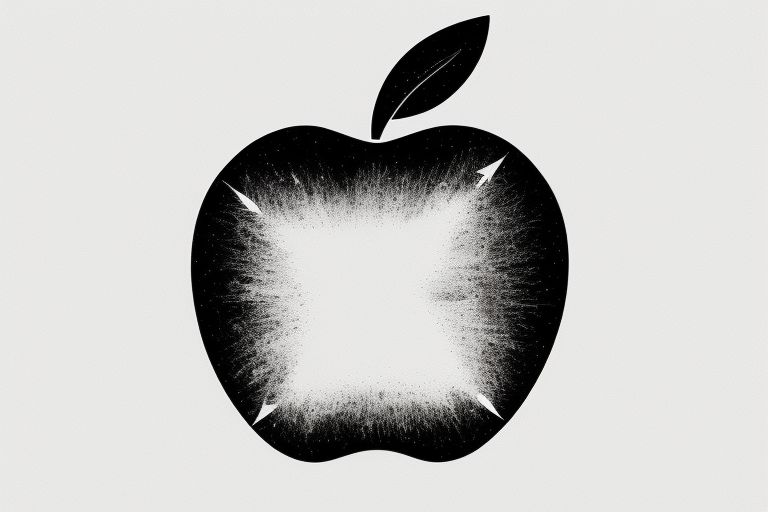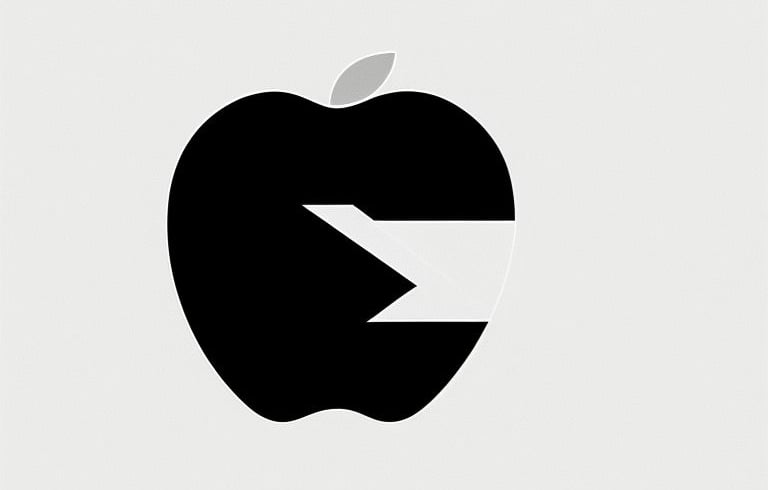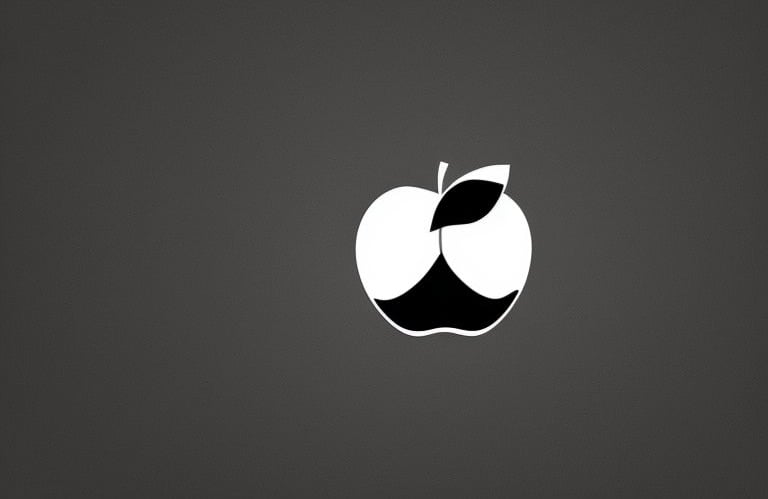This page will be updated aoap with detailed readings for those who prefer to digest their information via text.
Apple's "walled garden", is really a rationed box. The walled garden business strategy that Apple deploys restricts consumer freedom and limits the accessibility of its ecosystem to other platforms and products. This model, where Apple controls every aspect of the user experience, from the hardware to the software to the services, may offer a seamless experience, but it also has several significant drawbacks. Ex. Apple Watches locked to iPhones despite capabilities to connect to other devices. A prominent issue is that consumers become increasingly locked into Apple's ecosystem, often without realizing the long-term consequences. Once they purchase an Apple product, such as an iPhone or Mac, it becomes more difficult and expensive to switch to a competing brand or platform without facing compatibility issues, data migration challenges, or loss of functionality. As a result, Apple can maintain a dominant position in the market and charge higher prices for its products and services, knowing that customers are unlikely to leave.


One of the most significant negatives of the walled garden approach is the lack of competition. This stifles innovation and inflates prices. Apple controls the App Store, and the rules governing it heavily favor Apple’s interests while limiting opportunities for third-party developers. This creates an environment where developers must pay steep commissions (often 30%) for every sale made through their apps. Of course this charge is before even paying the taxes of the developers nation. This high commission structure not only limits the survivability of smaller developers but also discourages innovation in favor of creating apps that cater to Apple's requirements, rather than addressing consumer needs or offering more diverse options. Moreover, since Apple enforces strict app approval processes, it effectively controls what software can be distributed to its users, which limits consumer choice and reduces the variety of apps available on the platform. This lack of open competition can hinder the growth of the tech ecosystem, discourage innovation and make it difficult for smaller players with value from entering the market. ex. JIT(i.e Dolphin)
Another drawback of Apple’s walled garden is its restrictive approach to consumer data and privacy. While Apple markets itself as a champion of privacy, it also collects significant amounts of data from users within its ecosystem. Moreover, the company’s stringent control over app data practices can leave users feeling that their personal information is confined to Apple’s platform. Because Apple doesn't allow third-party software store or payment processors to operate on its platform freely(until recently in the EU), users are often limited to Apple's own services, which can sometimes lead to a false sense of privacy or security. For example, Apple's App Tracking Transparency feature, although a positive step towards protecting privacy, also limits how advertisers and other developers can target users. While this is seen as a benefit by some, it also gives Apple more power over how data is shared and monetized, further consolidating its dominance in the digital space. A stronger example is, alternative browser engines, Apple is being forced by the EU to allow them. Not surprisingly, Apple announced they have already proposed a plan to restrict them to the EU(2).
Apple's walled garden approach also has significant environmental and sustainability drawbacks. By tightly controlling the repair and upgradeability of its devices, Apple has created a cycle of planned obsolescence, where consumers are often forced to replace their devices before they intended due to software updates that may slow down older models or hardware that deteriorates. Repair costs that are too high, often justify the purchase of a new device for some who may not have considered it before. The company’s previous refusal to adopt more universal charging ports (for example, maintaining the proprietary Lightning cable instead of adopting the industry-standard USB-C across all devices) means consumers are constantly buying new accessories. This encourages wasteful consumerism, as accessories become obsolete and old devices are discarded.
The EU had to force Apple to adapt to modern standards(USB-C, Varied Browsers). Additionally, Apple's tendency to make it difficult for third-party repair services to service Apple devices creates a further barrier to extending the lifespan of its products. This “right to repair” issue has become a point of contention, as it not only harms consumers but also has negative consequences for the environment as more electronic waste is generated. Often times Apple will take 1 small step forward in this matter, only to take many steps backwards right after. Apple is now facing government pressure internationally to abandon these practices(3).
In conclusion, while Apple’s walled garden approach provides some form of antiquated integration and consistency, it also comes with significant drawbacks for consumers. The lack of competition, restrictive app policies, limited consumer choice, environmental waste, and high prices all contribute to a less-than-ideal experience for many users. Apple’s control over its ecosystem creates a scenario where consumers are more likely to stay locked into the Apple brand rather than the best or most suitable product for their needs. While Apple’s strategy may be profitable for the company, it often comes at the expense of consumer finances, freedom, innovation, and long-term sustainability.
1. Anecdotal;
It is Apple's responsibility to give higher quality products and deliver features more honestly when they have a userbase that depends on them so.
2. https://9to5mac.com/2024/01/25/third-party-app-stores-browsers-eu/ : Apple statements documented here are very much so using of choice words and influencing statements. The choice of a browser does not give "increased risks for malware, fraud and scams, illicit and objectionable content". A users actions within any given browser are the key factors, and Safari's webkit does not offer any breakthrough technology unavailable to other browsers.
.https://www.theverge.com/2024/1/25/24050478/apple-ios-17-4-browser-engines-eu
https://9to5mac.com/2024/01/25/third-party-default-browsers-engines/
https://arstechnica.com/gadgets/2024/02/google-and-mozilla-dont-like-apples-new-ios-browser-rules/
3.https://www.engadget.com/justice-department-files-antitrust-lawsuit-against-apple-over-its-infamous-walled-garden-144834571.html
https://www.npr.org/2024/09/20/nx-s1-5119948/a-look-at-the-dojs-lawsuit-against-apple-for-violating-antitrust-laws
https://www.chicagotribune.com/2024/03/21/justice-department-sues-apple-alleging-it-illegally-monopolized-the-smartphone-market/
https://tidbits.com/2024/01/29/the-eu-forces-open-apples-walled-garden/https://www.marketplace.org/shows/marketplace-tech/apple-will-reportedly-face-eu-fine-under-new-competition-law/
https://www.which.co.uk/news/article/which-files-3bn-legal-claim-against-apple-for-competition-law-breach-aj8DE0j83Q41
4. Apple fined for actions against Spotify, a competitor.
https://www.digitimes.com/news/a20240325PD217/apple-eu-anti-trust-lawsuit-app-store.html
Walled Garden; Apple.


One of the most significant concerns regarding iOS vulnerabilities is the frequency with which critical flaws are discovered. Research from security experts and independent security researchers regularly uncovers vulnerabilities that can be exploited by malicious actors, often before Apple has had a chance to release a fix. These vulnerabilities, many of which are related to the operating system’s kernel or other low-level components, allow attackers to execute arbitrary code on a device with limited user interaction. For example, attacks like "zero-click" exploits can trigger vulnerabilities without the user even opening an app or clicking on a link, making it difficult for users to defend themselves. This continuous exposure to such threats can leave consumers vulnerable to data theft, surveillance, and other malicious activities, undermining the security assurances Apple claims to offer(2).
Another area particularly concerning is the high volume of iOS devices in circulation and the potential for large-scale cyberattacks. While the company does offer tools like the iOS Security Advisory and the ability for developers to patch apps quickly, the overall response time for critical vulnerabilities in the operating system has been criticized as insufficient, especially in cases where arbitrary code execution vulnerabilities are involved.
The issue of arbitrary code execution vulnerabilities is compounded by the fact that iOS is a closed system, which means Apple tightly controls the software and services available to users. While this offers a degree of consistency and security, it also means that when vulnerabilities are discovered, they cannot be addressed as quickly as in more open-source platforms. Security researchers, rather than being able to actively participate in fixing issues, must wait for Apple to acknowledge and patch flaws. Furthermore, the centralized nature of the App Store and reliance on Apple’s approval process can make the ecosystem susceptible to targeted attacks.In this sense, the closed system, while secure in theory, creates a paradox where vulnerabilities can go unnoticed or unaddressed for longer than in more transparent ecosystems.
Despite Apple’s claims of rigorous security measures, the company’s OS has also shown critical flaws in its encryption and privacy practices. Even more troubling is the fact that some of these vulnerabilities have been discovered by surveillance companies who use them for commercial purposes, such as exploiting flaws to unlock devices or access encrypted data. This raises significant concerns about Apple’s ability to protect user privacy and safeguard sensitive information, especially given that iOS devices are often used for personal, financial, and work-related activities. When a vulnerability allows arbitrary code execution, it can effectively bypass the most secure privacy features, putting users at significant risk.
In conclusion, Apple’s operating system is far from immune to critical vulnerabilities that can expose users to the risk of arbitrary code execution. While the company has made significant strides in improving security, the continued discovery of serious flaws in iOS undermines its reputation as an impenetrable platform. Slow response times to patch vulnerabilities, coupled with the inherent risks in a closed ecosystem, leave iOS users exposed to a variety of threats, including data breaches, privacy violations, and device hijacking. As Apple continues to prioritize security, it will need to address the fundamental issues in its operating system to ensure that users can trust the platform with their sensitive data and personal information.
1. Ex. Article Titled: Apple announces powerful new privacy and security features https://www.apple.com/newsroom/2023/06/apple-announces-powerful-new-privacy-and-security-features/
2. https://www.bleepingcomputer.com/news/security/apple-zero-click-imessage-exploit-used-to-infect-iphones-with-spyware/
https://appleinsider.com/articles/23/06/01/zero-click-ios-malware-attack-through-imessage-is-actively-infecting-iphones
https://9to5mac.com/2023/12/27/most-sophisticated-iphone-attack-chain-ever-seen/
https://www.zdnet.com/article/google-this-zero-click-iphone-attack-was-incredible-and-terrifying/
https://www.trendmicro.com/en_us/research/21/i/analyzing-pegasus-spywares-zero-click-iphone-exploit-forcedentry.html
https://www.forbes.com/councils/forbestechcouncil/2024/01/03/the-pegasus-wake-up-call-iphone-security-in-the-face-of-zero-click-exploits/
https://www.wired.com/story/imessage-interactionless-hacks-google-project-zero/
https://arstechnica.com/security/2023/12/exploit-used-in-mass-iphone-infection-campaign-targeted-secret-hardware-feature/
Full Control Flaw : https://www.cbc.ca/news/business/apple-security-flaw-full-control-1.6556039
https://promon.co/security-news/android-vs-ios-security
Vulnerabilities; Apple Inc.
Apple has long been celebrated for its sleek hardware often positioning itself as a leader in both design and security. Despite these claims, however, the company’s products, namely the operating system, iOS, has exhibited numerous critical vulnerabilities over the years, raising concerns about the safety and privacy of users. While Apple consistently patches known vulnerabilities through updates, its operating system has been found to contain serious flaws that could lead to arbitrary code execution, allowing attackers to gain unauthorized access to devices and data. These security gaps undermine the company’s claims of providing a secure and stable environment for users, casting doubt on whether Apple’s ecosystem is what it markets itself to be(1).
Apple Inc. has long marketed itself as a champion of user privacy, with its products and services often touted as safer alternatives in a digital world rife with data exploitation. Despite these claims, there have been several instances where the company has been criticized for violating or undermining consumer privacy. These issues range from user data collection practices that are not fully transparent to the inadvertent sharing of private information with third parties. This essay examines some key areas where Apple’s actions have raised concerns regarding the privacy of its consumers.


One significant issue revolves around Apple’s location-tracking features. Apple devices, such as iPhones and iPads, use a variety of sensors and services to collect users' geographic data. While location services can be turned off by the user, they are often enabled by default for a range of applications. Apple has been collecting location data since at least 2010. This practice raised serious privacy concerns as it occurred without the explicit, informed consent of users. Although Apple defended this as part of its broader effort to improve services such as personalized advertising, many consumers and privacy advocates felt betrayed by the company's lack of transparency and clear communication regarding what data was being collected and for what purpose.
Another controversy erupted in 2019 when Apple was accused of storing users' voice data without proper consent. The company's virtual assistant, Siri, listens for "Hey Siri" commands, but it was revealed that Apple contractors were reviewing anonymized audio recordings of Siri interactions to improve the accuracy of the service. Even though Apple initially claimed that these recordings were anonymized, the incident raised concerns about the extent of Apple’s access to private conversations. The company later revised its policies, allowing users to opt out of having their recordings analyzed and implemented stricter guidelines on how Siri data was stored. However, the scandal prompted a larger conversation about whether Apple was truly safeguarding its users' privacy or whether it was simply relying on corporate goodwill to mitigate any fallout from these practices.
In addition to location tracking and Siri, Apple's iCloud service has also been a source of privacy concerns. In 2014, the infamous iCloud hacking scandal, known as "The Fappening," exposed private, intimate photographs of celebrities who had stored them on iCloud. This event raised questions about the security of Apple’s cloud services and the potential risks of storing sensitive data on its servers. While Apple stated that the hack was the result of phishing attacks rather than a breach of its own security systems, critics argued that the company could have done more to protect users' data, especially given the level of trust that consumers placed in its services. Since then, Apple has made improvements to its iCloud security, such as offering two-factor authentication and end-to-end encryption for certain types of data. Nevertheless, the incident has left a lingering shadow over the company's ability to secure sensitive consumer information.
Apple has also been criticized for its role in facilitating third-party access to user data through its App Store. Despite its public stance on privacy, Apple has occasionally allowed apps to collect extensive personal information from users, sometimes without adequate transparency.These apps were found to be tracking users' movements and collecting personal information in ways that were not clearly disclosed in their privacy policies. While Apple has taken steps to address this issue by enhancing its App Store guidelines and introducing more to it privacy policies, these violations highlight a disconnect between its public claims of privacy protection and its actual oversight of third-party developers.
Finally, Apple's handling of app permissions and user consent has been a subject of scrutiny. While the company has made leaps in giving users more control over their data, there have been instances where Apple’s privacy settings were either difficult to navigate or left users unaware of the extent to which their data was being shared. For example, the "Apple ID for Advertisers" feature allows the company to track users for advertising purposes across apps and websites, a practice that has drawn comparisons to similar methods used by other tech giants like Google and Facebook. Despite offering users the ability to disable this feature, many consumers remain unaware of how much data Apple collects and how it is used for targeted advertising. This lack of transparency, coupled with Apple’s general reluctance to disclose detailed information about its data collection practices, has raised concerns about how serious the company is about truly safeguarding user privacy.
In conclusion, while Apple has made significant efforts to market itself as a privacy-conscious company, it has faced multiple allegations of compromising consumer privacy through practices like location tracking, Siri data collection, iCloud security breaches, and inadequate oversight of third-party app data usage. Although the company has made efforts to improve in response to these controversies, such as offering greater user control over privacy settings and enhancing security measures, these incidents reveal a more complex reality about the company's relationship with consumer privacy.
Sources:
https://gizmodo.com/apple-iphone-analytics-tracking-even-when-off-app-store-1849757558
https://www.ft.com/content/3cabd134-0271-4783-8f0e-a17bb682afbe
https://www.nytimes.com/2021/08/19/opinion/apple-iphone-privacy.html
https://hbr.org/podcast/2024/02/apples-dilemma-balancing-privacy-and-safety-responsibilities
https://apnews.com/general-news-d600e35bac2745ddb4f72a0a4c0f4818
These sources offer more in-depth details on the various privacy concerns surrounding Apple Inc., and can be cross-verified for accuracy and reliability.
